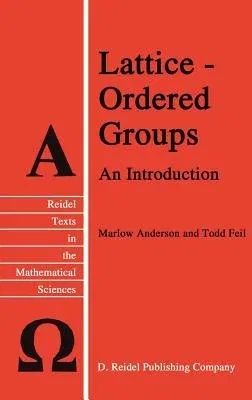M E Anderson
(Author)Lattice-Ordered Groups: An Introduction (1988)Hardcover - 1988, 31 January 1988

Qty
1
Turbo
Ships in 2 - 3 days
In Stock
Free Delivery
Cash on Delivery
15 Days
Free Returns
Secure Checkout

Part of Series
Reidel Texts in the Mathematical Sciences
Part of Series
Reidel Texts in the Mathematical Sciences (Closed)
Print Length
204 pages
Language
English
Publisher
Springer
Date Published
31 Jan 1988
ISBN-10
9027726434
ISBN-13
9789027726438
Description
Product Details
Authors:
Book Edition:
1988
Book Format:
Hardcover
Country of Origin:
US
Date Published:
31 January 1988
Dimensions:
23.39 x
15.6 x
1.27 cm
ISBN-10:
9027726434
ISBN-13:
9789027726438
Language:
English
Location:
Dordrecht
Pages:
204
Publisher:
Weight:
462.66 gm